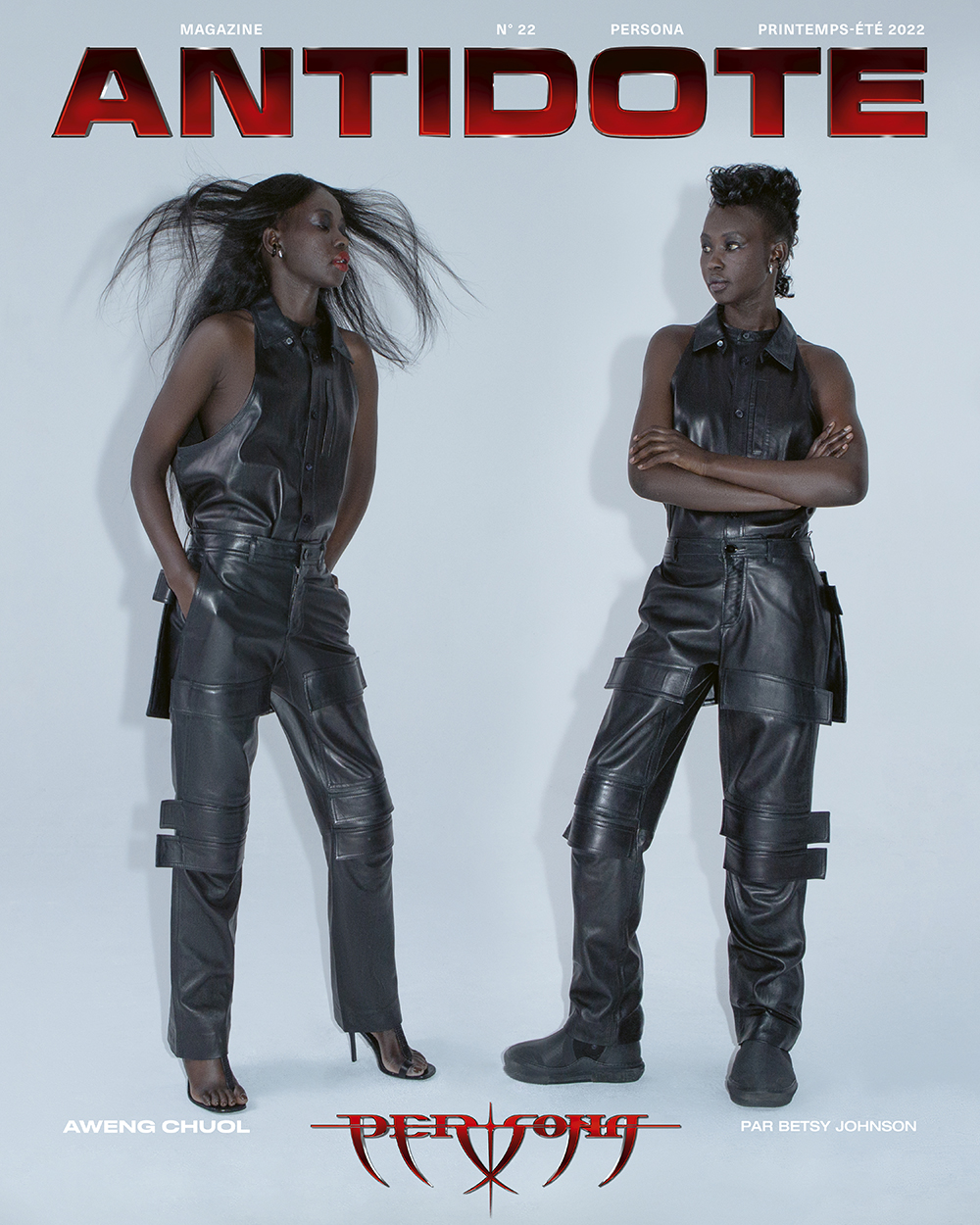It feels like everyone’s mental health is hanging on by a thread as society crawls back to whatever semblance of normalcy we’ll collectively create. Yet, questions like have we processed all the pain that has happened to us collectively, remain unanswered. Model and hotlist member Aweng Chuol is no stranger to having complex discussions free of stigma as a vocal advocate of mental health amongst former refugees and within the LGBT community. Ever since the South Sudanese model was discovered under the famed golden arches of a Sydney McDonald’s, Chuol has not let up on her goals of ascending the fashion industry, working with high profile clients shot through the lens of photographers like Viviane Sassen, Harley Weir, or Carlijn Jacobs. Chuol, whose father, a former child soldier, later died as a result of fighting in the ongoing South Sudanese Civil War, has been affiliated with charity organizations like War Child and Children in Conflict, has spoken at the UN’s Mental Health Forum and has ambitions to be South Sudan’s first female president. Yet, even Chuol recognized the limitations of success during the isolation of lockdown and after losing close friends to suicide. “There is an almost patronized and reduced perspective on the level of control we have over our mental health,” she explains. There is no better time than Mental Health Awareness Month to check in with the rising ingenue on her perspective on dealing with depression and anxiety, finding solace connecting to others on social media, and the biggest misconception about our mental health as a black woman navigating the World.
Take us back to your scouting story – how did you first get discovered and then move to work on the international market?
I was first discovered while working at my local McDonald’s back home in Sydney, Australia. I was in the midst of a shift and was approached about being a model. A few days later, I had an agent call me, had a test shoot– and the next thing I was doing an exclusive for Vetements in Paris.
What motivated you to share your story and raise awareness about depression?
I was motivated to share my story about my mental health, as it is a very ‘hush, hush’ conversation within a lot of communities and society in general. With the beginning of the pandemic, the lockdown of countries, the lockdown of industries, and the complexity of the world not knowing where the future was heading, my mental health went into a deep dark place. The fear of reality took over and I wanted to give myself the grace to know its impact on my mind and emotional health; the motivation to share my story was me wanting to add to the conversation of sometimes not being okay.
How did the COVID-19 pandemic cultivate mental health struggles in your life?
At the beginning of the pandemic, I had a lot of panic attacks and anxiety. At some point, I stopped watching the news and deleted social media apps on my phone; I felt suffocated for a huge part of the pandemic. Then, I went into another stage of being frustrated with the stillness and aloneness we all had to readjust to. The pandemic had my mental health going through the stages of self-loss, self-preservation, and then, to an extent, emotional exhaustion (I started doing puzzles to feel like I had control, I highly recommend it!)
What is the biggest misconception about our mental health as black women?
I had written a piece during the pandemic about my opinion on the strong black woman trope. The biggest misconception would be the strength; there is an almost patronized and reduced perspective on the level of control we have over our mental health.
What are some common mental health issues you’ve seen impact models and the fashion community?
The two common mental health issues that I’ve seen the impact the industry are depression and anxiety. The pressures of the beauty industry as a whole certainly affect models. The internal demands of the fashion community itself can cause a lot of self-grief, doubt, self-consciousness, and overall insecurity in what you are doing, which then leads to the emotion of aloneness.
You’ve openly spoken about your own experience with suicide and the suicide of close friends around you. How has social media offered you a platform to connect with others who share similar mental health challenges?
I think social media reminded me to have my feet on the ground regarding mental health challenges, especially with friends, peers, family, and lovers. I had gone through a lot at the beginning of the year, like losing a few very important in my life to suicide, and I was in a very frozen place for a while. Social media offered solace in having my feet on the ground; I was sent places to go for grief therapy, grief help books, and links.
Over the years, have you seen changes in the industry regarding these issues, or especially with the pandemic, have new issues arisen?
Fashion, beauty, and entertainment as collective industries have made a big step in the right direction regarding these issues. The opening of the dialogue to learning about these mental health issues and acknowledging the industry’s impact on the people in it. I feel like the first step is always to start. I believe that we have all become more empathetic with the pandemic.
What advice would you give those that don’t feel like they can share they’re feeling depressed or struggling with another disorder?
The advice I would give is that it is not an alone battle, do not be afraid to speak to someone. If you feel like you cannot share, there are many professional services; share with a close friend, and please try your best to share the weight. May your today always be better than your yesterday.



